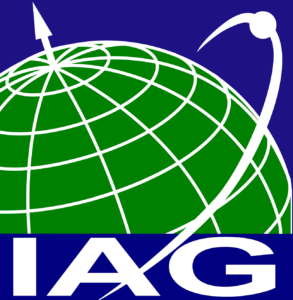JSG T.50 High-precision GNSS theory and algorithms
Chair: Dimitrios Psychas (The Netherlands)
Affiliations: Commissions 1,4
Terms of Reference
The family of modernized and recently-developed global and regional navigation satellite systems is being further extended by plentiful Low Earth Orbit (LEO) navigation satellites that are almost 20 times closer to Earth as compared to current GNSS satellites. This namely means that navigation sensory data with much stronger signal power will be abundantly available, being in particular attractive in GNSS-challenged environments. Next to the development of new navigation signal transmitters, a rapid growth in the number of mass-market GNSS and software-defined receivers would at the same time demand efficient ways of data processing in terms of computational power and capacity.
Such a proliferation of multi-system and multi-frequency measurements, that are transmitted and received by mixed-type sensing modes, raises the need for a thorough research into the future of next-generation navigation satellite systems, thereby appealing rigorous theoretical frameworks, models and algorithms that enable such GNSS-LEO integration to serve as a high-accuracy and high-integrity tool for Earth-, atmospheric- and space sciences.
Objectives
• Identify, investigate, and tackle challenges that are posed by the integration and processing of multi-GNSS data with heterogeneous sensory measurements, like LEO observations, that are sensed by, e.g., next-generation navigation- and communication-oriented constellations.
• Develop and study theory for multi-GNSS integrity and quality control, taking into account the combination of parameter estimation and statistical testing.
• Conduct an in-depth analysis of low-cost, low-power and mass-market GNSS sensory data, such as those of smartphones, and investigate their performances in geoscience applications, considering also fusion with other sensors.
• Develop algorithmic frameworks and strategies to deal with computational challenges encountered in parameter estimation and testing in the presence of a huge number of GNSS and LEO sensing nodes.
• Articulate theoretical developments and findings through journals, conference proceedings, and online and in-person workshops.
Program of Activities
While the investigation will strongly be based on the theoretical aspects of the GNSS-LEO observation modelling and challenges, they will be also accompanied by numerical studies of both the simulated and real-world data. Given the expertise of each member, the underlying studies will be conducted on both individual and collaborative bases. The output of the group study is to provide the geodesy and GNSS communities with well-documented models and algorithmic methods through the journals, conference proceedings, and workshops, primarily including IAG assembly in Rimini in 2025, Hotine-Marussi symposium in 2026, and the annual EGU and AGU assemblies.
Members
Dimitrios Psychas (The Netherlands), chair
Andreas Brack (Germany)
Pengyu Hou (China)
Amir Khodabandeh (Australia)
Lotfi Massarweh (The Netherlands)
Nacer Naciri (USA)
Robert Odolinski (New Zealand)
Jacek Paziewski (Poland)
Sandra Verhagen (The Netherlands)
Kan Wang (China)
Safoora Zaminpardaz (Australia)
Baocheng Zhang (China)



